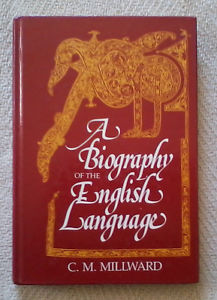When I’m teaching, I do bring some books to class in order to point students toward them. I don’t think books are a substitute for the act of writing, but they can help focus and direct your practice and give you a list of things to work on that might not otherwise occur to you. Here’s a list of my top ten for speculative fiction writers focusing on their craft. I was sad to find some not available on the Kindle, but where possible, I’ve pointed to the e-version.
- The 10% Solution by Ken Rand from Fairwood Press. I love this slim little book, I recommend it above all others for both fiction and nonfiction writers, and I think you cannot get more bang for your buck than buying this book and applying its methods. I use it on all my pieces — the process becomes less mechanical and more automatic as time goes by.
- The Elements of Style by Strunk and White. Kindle version. You get this when you go off to college but no one ever reads it. It is well worth sitting down and working your way through.
- Steering the Craft by Ursula K. LeGuin. Thoughtful and poetic writing instruction. I often use the Expository Lump exercise in my Writing Fantasy & Science Fiction class, and learn something new from it every time.
- Beginnings, Middles, and Ends by Nancy Kress. Useful and practical, Kress goes over the basics, putting them together in a coherent and easily understandable fashion that includes plenty of exercises to work through.
- Writing Down the Bones: Freeing the Writer Within by Natalie Goldberg. Kindle version. While this book will prove too new-agey hippie for some (I’d advise those to turn to Strunk & White or the Kress), it’s a useful and exciting kick in the butt to write for others. I appreciate Goldberg, whose book taught me the habit of doing timed writings, a mainstay of my process.
- About Writing: Seven Essays, Four Letters, and Five Interviews by Samuel R. Delany. Delany is one of the greatest voices of the 20th/21st century, and his writing advice is practical and elegant and deep. One of the things he says is that you can’t write anything better than the quality of what you’re reading and that seems like great, inspirational advice to me.
- Surrealist Games by Alastair Brotchie. If you want to enliven your writing, play some of the games enclosed here, which inspired some of the greats of the Surrealist movement.
- The Passionate Accurate Story: Making Your Heart’s Truth Into Literature by Carol Bly. Some great stuff on writing here, and interesting exercises, including writing a scene that doesn’t actually appear in the story.
- Style: Lessons in Clarity and Grace by Joseph M. Williams. I originally ran across this book while teaching composition at Johns Hopkins, and I think it’s just fabulous for focusing on the sentence level. I’ve found it often hard to find over the years, so I’m happy to see it in print again.
- On Writing by Stephen King. (Kindle version) The first part is raw autobiography that is a useful insight into how a writer can be off the rails and still productive. The second part, which focuses on writing, is full of terrific stuff that shows what a craftsman King is.
2016 addendum! I still stand by all these, but here are five more:
Million Dollar Outlines
Storyteller by Kate Wilhelm
talk the Talk: A Dialogue Workshop for Scriptwriters by Penny Penniston
The Three Jaguars: A Comic about Art, Business, Life by M.C.A. Hogarth
Wonderbook: The Illustrated Guide to Creating Imaginative Fiction by Jeff VanderMeer. Worth it just for the pretty illustrations and marvelous charts produced by Jeremy Zerfoss in collaboration with VanderMeer, but also jam-packed with good and interesting writing advice that I have found best absorbed in small chunks, dipping into the book now and again for inspiration.









7 Responses
I’m glad to see Style there. That and Techniques of the Selling Writer are two that I haven’t outgrown in a hurry.
I haven’t read Techniques of the Selling Writer, but I’ve now added it to my reading list. I really like the Style book. It comes at the sentence from an angle that a lot of writing books don’t when it includes the idea of “grace” (in my opinion).
I enjoy Writing Down The Bones, and King’s On Writing. Thanks for the other recommendations.
Self-Editing for Fiction Writers is pretty great.
Thanks Richard, I’ll have to check that out!
“Writing the Blockbuster Novel” by Al Zuckerman is definitely on my top 10 list.
I just finished reading a couple of those others (Steering the Craft most recently, wow what a good book). Kress has another book, on characters and viewpoints I believe, that’s pretty good too and a nice supplement to Card’s “Character and Viewpoint”.